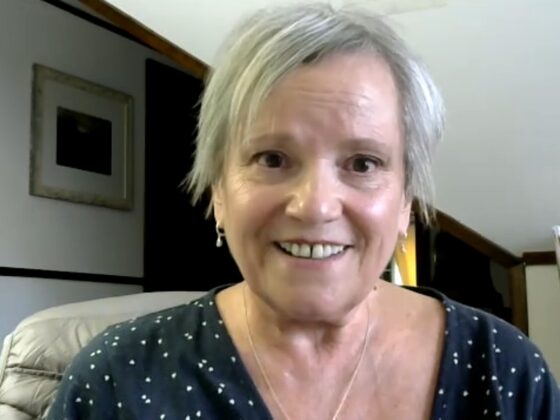It happens every time.
He stood in front of the room, remembering the moment he uncovered a family secret. Everything he had known about himself and his place in the world was wrong. As he grappled with new truths, he was forced to decide what he truly believed about trust, family, identity and life purpose.
The room was still as he told his story. His listeners weren’t checking their phones or letting their minds drift elsewhere. Instead, they were leaning forward, taking in each word and remembering moments when they, too, had been at a crossroads.
Although his story was especially dramatic, the effect he created was familiar. I facilitate storytelling workshops with diverse groups—corporations, nonprofit organizations, graduate classes and more—and the same dynamics occur. When people tell their stories, they engage the hearts and minds of their listeners and break through apathy and resistance. Their listeners stop judging and realize the universal truth that behind every person there is a story waiting to be told, heard and embraced. Attitudes soften, conversations begin and minds open to new possibilities and ways of thinking.
Storytelling is, quite simply, transformative.
Crafting Your StoryHere are a few simple steps to discover and hone your story:
- Identify your purpose and audience. Are you trying to reinforce values, develop leaders or achieve a different goal? Who will your audience be?
- Unblock your memories. Pick a word related to your purpose. Then, spend 15 minutes writing whatever comes to mind. Don’t worry about grammar, logic or staying on topic. Just write.
- Select your story. You’ll now have memories that can be developed into stories. Pick the one that best matches experiences your audience will share.
- Activate their senses. Draw your listeners in by including a few sensory details. Paint a scene and add a sound or smell you remember.
- Simplify your language. Use everyday language, not business jargon, and pare your story down to the essentials. That way, your listeners can reflect on how the story relates to them.
How Great Leaders Use Storytelling
I began incorporating storytelling into leadership development and teambuilding workshops 15 years ago. I had been invited to teach graduate classes in critical leadership, and I reflected on how best to distill the topic into one semester. In addition to sifting through my own experiences and reading, I intensively studied some of the most effective leaders across sectors and industries. What set them apart from other competent leaders was their ability to employ storytelling to lead organizations and teams.
Storytelling is obviously not the only leadership skill, but it is an essential one. The best leaders understand the power of a well-selected tale and craft their own set of crucial stories. They think of their stories as quivers in their bows, which they can strategically unleash to accomplish their goals. They also understand that their stories, rather than the tales of famous athletes or historical figures, are the most potent because personal stories demonstrate our willingness to share ourselves and invite others to share in return.
As I studied these great leaders, I observed how they used stories to reinforce values, prepare their organizations for change, develop emerging leaders, strengthen teams and engage employees to achieve higher levels of productivity and innovation. I have also trained sales forces and professional services teams to employ storytelling to create stronger client relationships. As one financial advisor told me after using his new storytelling skills, “When I share my story, I become human to them.”
How to Become a Storyteller
If you need to engage, motivate and lead people, storytelling is an essential skill to master. It doesn’t take the skills of Homer or a commitment to reveal uncomfortably personal information to business associates. Start by uncovering just one simple story that will help you open conversations and engage hearts and minds.
Remember: You have a life rich with stories that only you can tell, and your stories have the power to connect people in deeper ways. Begin with one story, and then contact SageRiver Consulting to discover how we can help you and your team unlock the transformative power of storytelling.




